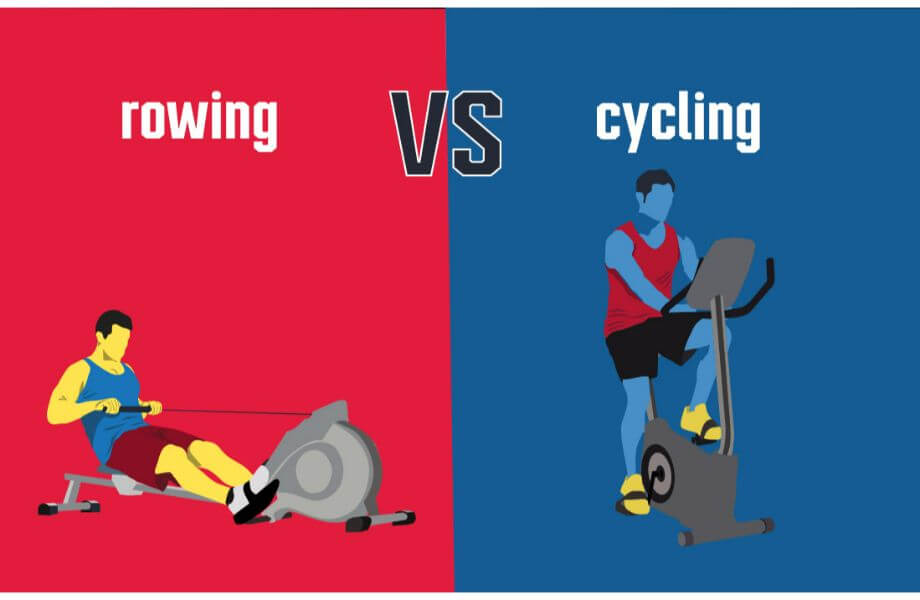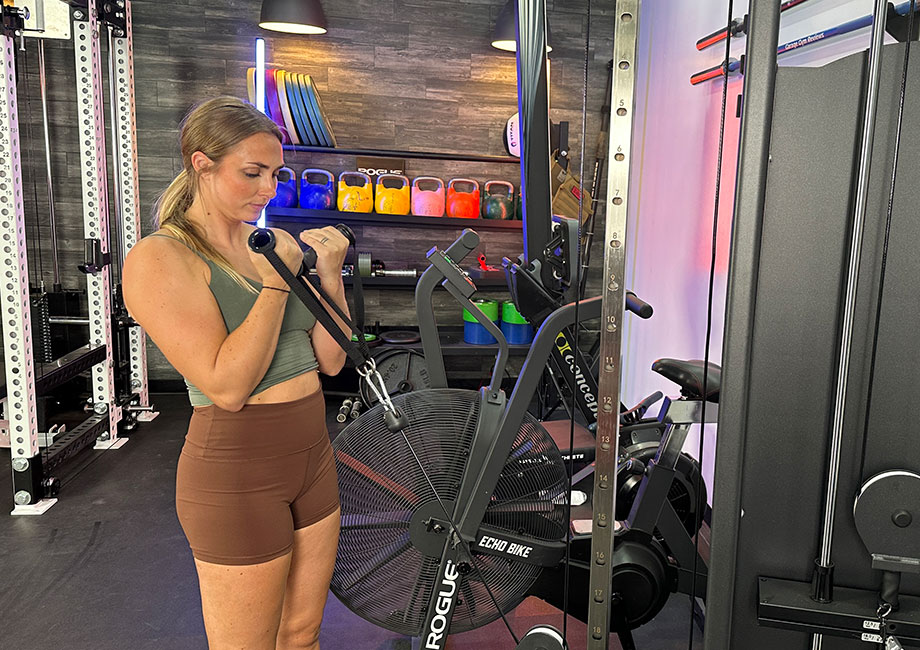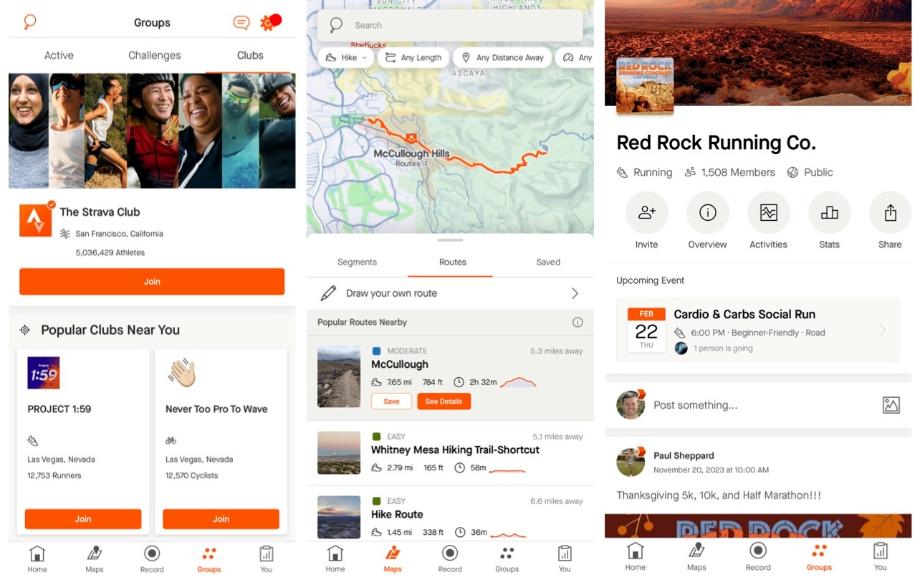Both are low-impact workouts with some notable distinctions
Rowing and cycling are two means to the same end: improved cardiovascular health, increased strength and muscular endurance, and calorie burn.
And like all aerobic exercise, both types of workouts can also improve your mental health by boosting your mood and potentially improving your self-esteem. But while the outcome is the same (assuming you’re exercising regularly), there are some notable differences between the two types of workouts.
Here, we’ll highlight the benefits of rowing vs cycling. We’ll also compare joint impact, muscles worked, number of calories burned, and accessibility to help you decide which type of cardio workout makes more sense for you.
RELATED: Can you lose weight on an exercise bike?

Rowing vs Cycling: Quick Comparison
| Rowing | Cycling | |
| Impact | Low | Low |
| Muscles worked | Total body (about 85% of muscles) | Lower body |
| Fitness level | Beginner to advanced | Beginner to advanced |
| Space | Larger horizontal footprint | Harder to stow |
| Health benefits | Improves cardiovascular health, boosts mental health, increases upper and lower body strength | Improves cardiovascular health, boosts mental health, increases lower body strength, encourages better posture |
Rowing Machine Benefits
Rowing provides a killer aerobic workout while engaging almost 85% of your muscles. And while it’s fundamentally a cardiovascular exercise, rowing serves as a form of strength training too, thanks to the resistance of the flywheel, according to Amanda Capritto, certified personal trainer and GGR writer.
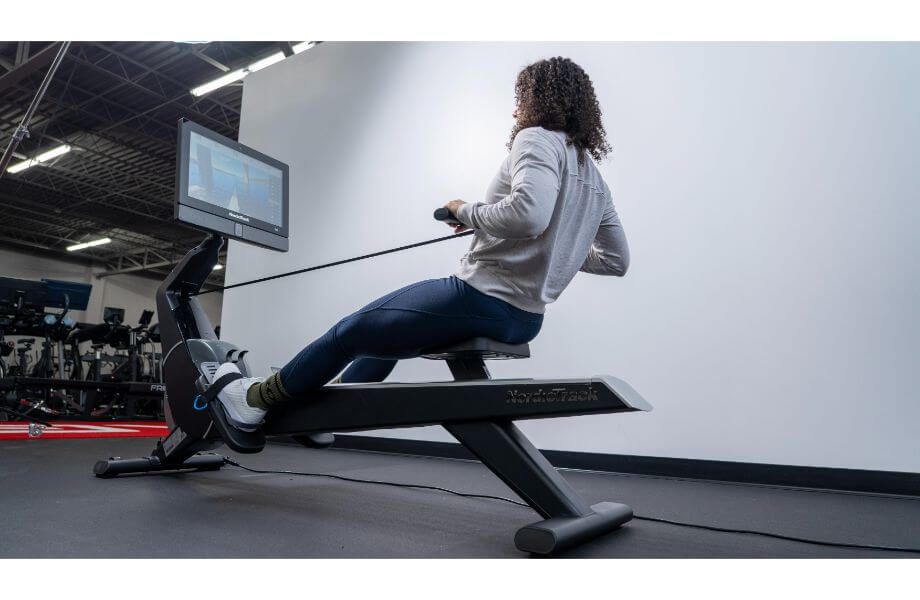
Our rowing machine benefits guide has an in-depth look at everything rowing can offer, but here’s a quick breakdown:
- Low-impact workout
- Can improve cardiovascular health and endurance
- Increases lower and upper body strength by activating all major muscle groups
- Full-body workout
Benefits of Cycling
Because cycling is also a cardio workout, it shares many health benefits with rowing, but it does have some additional merits, too. Our indoor cycling benefits guide has the full scoop, but here’s an overview:
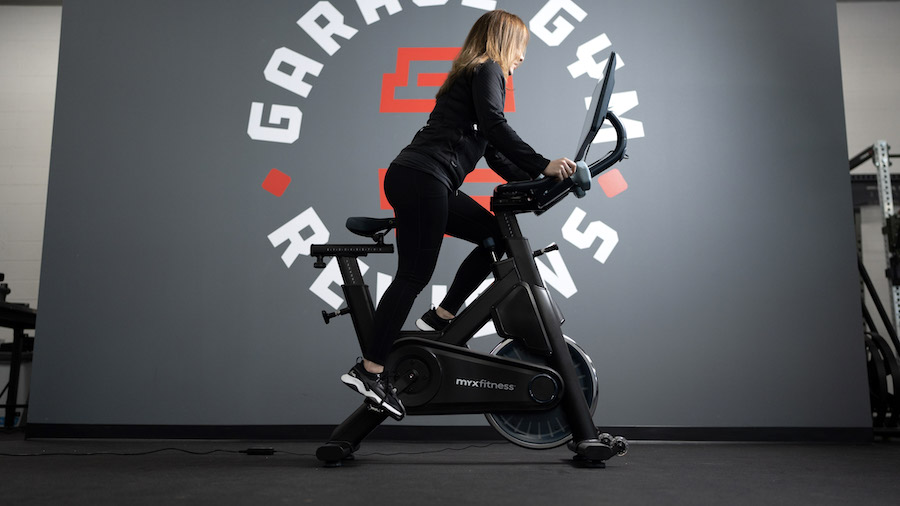
- Low-impact workout
- Can improve cardiovascular health and endurance
- Strengthens legs and lower body muscles
- Encourages better posture since you have to keep your back neutral
Rowing vs Cycling: Key Similarities
Outside of the shared benefits to your cardiovascular system and mental health, rowing and cycling have some other key similarities.
Impact
Rowing and cycling are both low-impact cardio workouts that don’t stress the joints as much as higher-impact exercises like running or plyometrics. But just because they’re low-impact doesn’t mean they can’t be high-intensity. You can effectively do high-intensity interval training, or HIIT, on either type of machine.
RELATED: Rowing vs Running
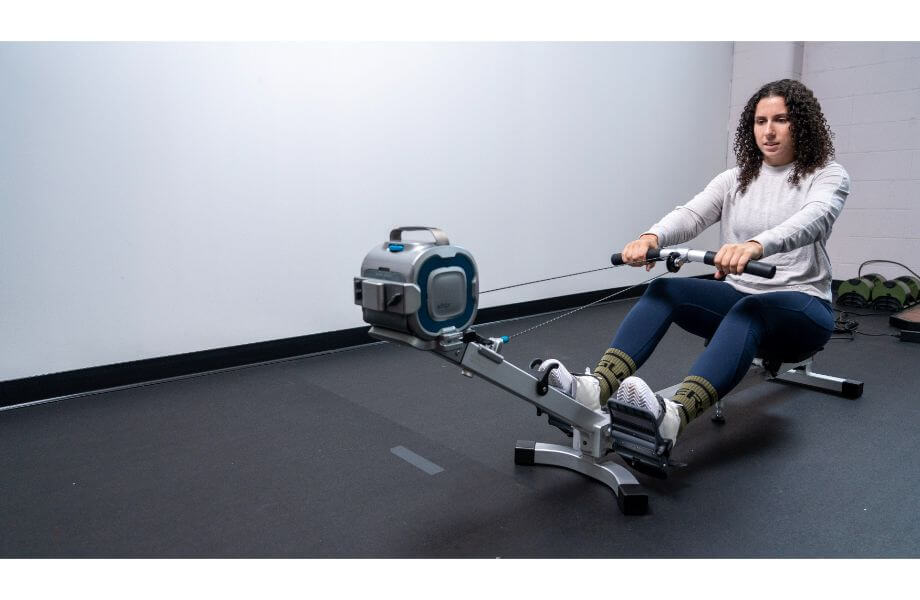
Because they’re low-impact, both machines can also be used for gentle recovery workouts. “It’s really as hard or as easy as you make it,” says Amanda.
Fitness Level
They’re also both great for all fitness levels, including beginners. While rowing might have more of a learning curve, especially if you’ve been riding a bike since you were little, once you get proper rowing technique down, it will be smooth sailing (pun intended).
Rowing vs Cycling: Key Differences
Muscles worked, accessibility, and space requirements (if you’re purchasing an exercise machine) are among the key differences between rowing and cycling.
Muscles Worked
Rowing works nearly 85% of your muscles—almost your entire body. It engages your leg muscles, upper body and back muscles, and your core.
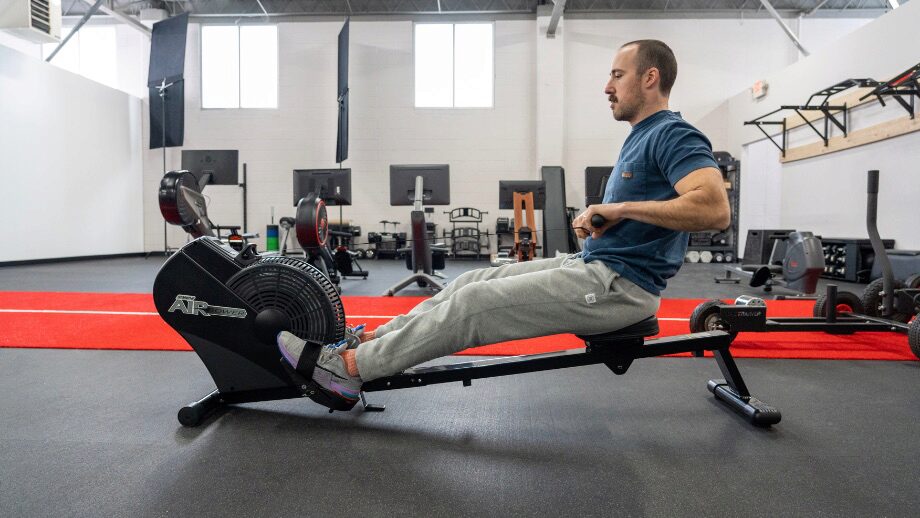
Cycling primarily works the leg muscles, including the glutes, quads, hamstrings, and calves. Cycling outside requires more balance than working out an exercise bike, so you’ll be activating your core and lower back as well, but it’s still not quite as much of a whole-body workout. (Unless you’re using an air bike with moving arms).
Accessibility
If you’re planning to purchase a rowing machine or an indoor exercise bike, accessibility is similar (aside from potential space constraints). However, if you want to take your workout outside, access to rowing becomes a little more difficult since you need to be near a body of water.
Space
If you’re considering purchasing a rowing machine or stationary bike for your home gym, you’ll want to consider space constraints.
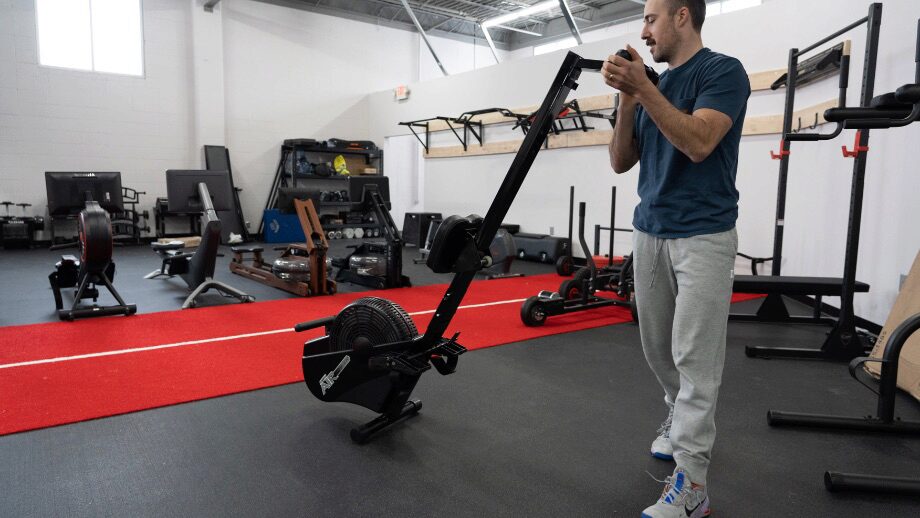
Rowing machines require more floor space than bikes. While some rowing machines are foldable so you can stash them away, you’ll need to have enough clearance (for reference, our top pick, the Concept2 RowErg, is 95 inches long) to fully extend the machine when using it.
However, rowing machines are typically lighter and easier to move than exercise bikes, so if you do need to wheel it out of the way, it’s easier to manage.
Does Rowing or Cycling Burn More Calories?
Calorie burn largely depends on individual characteristics, like your body size, body composition, fitness level, and level of exertion. Because of that, there’s no way to definitively say whether rowing or cycling burns more calories. Calorie burn also differs based on whether you’re rowing or cycling indoors or outdoors. However, it’s possible to make some generalizations.
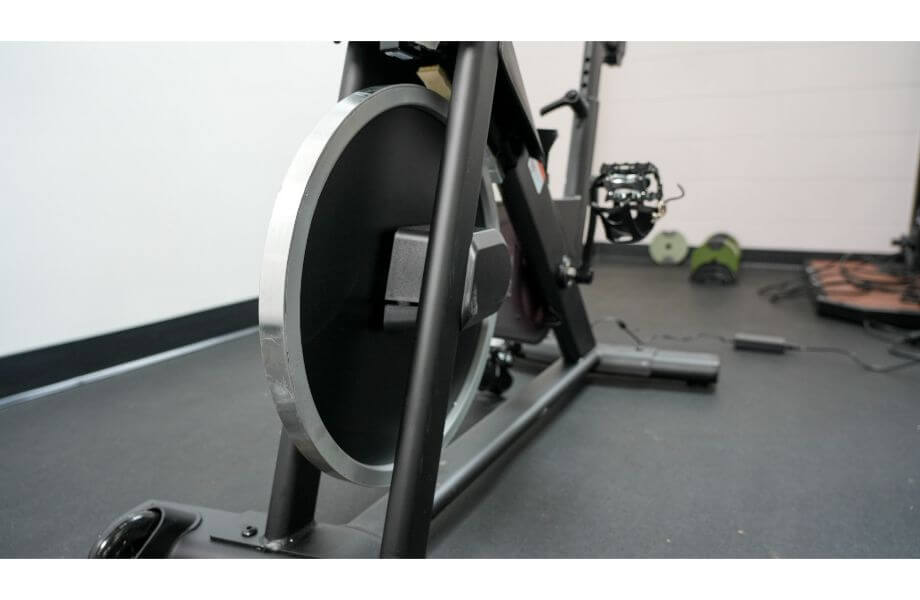
According to Harvard Health, a 155-pound person burns the same amount of calories when rowing or cycling at a moderate pace, about 252 calories for 30 minutes of exercise.
When the pace is picked up a little, rowing gains a slight edge—that same 155-pound person burns about 369 calories rowing at a vigorous pace and 278 calories cycling for 30 minutes. An older study comparing energy expenditure between the two cardio exercises also reported similar results.
Is Rowing or Cycling Better for Weight Loss?
“Both machines can help facilitate long-term weight loss as long as you remain consistent, but that’s only one piece of a much larger puzzle,” says Amanda.
Successful, long-term weight loss requires a healthy, nutrient-dense diet, adequate sleep, and stress management. It also requires commitment, stresses Amanda, who says that the best exercise for weight loss is one that you enjoy and will actually do regularly.
RELATED: Rowing for Weight Loss
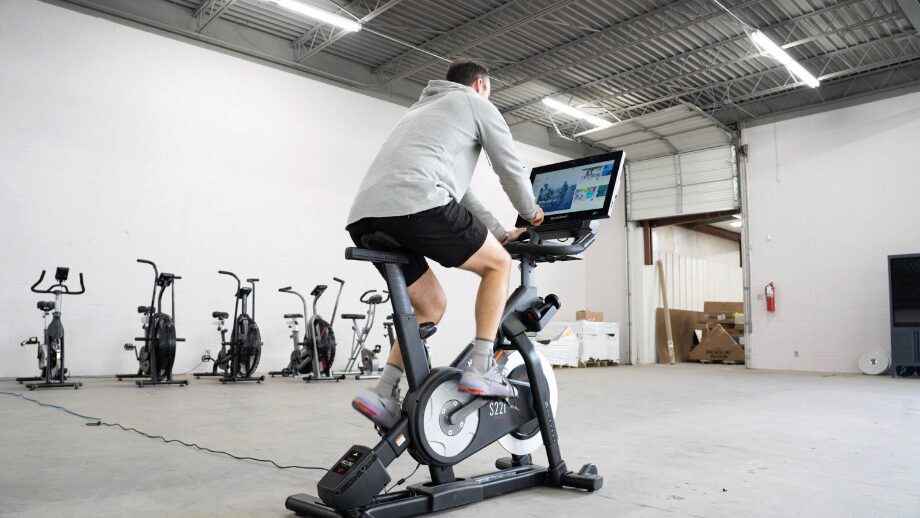
Does Riding a Bike Build Muscle?
Strength training is the best way to build muscle mass, but riding a bike can strengthen your lower body since you primarily use your leg muscles. If you’re riding uphill, or set a higher resistance on a stationary bike, cycling can act as a form of light resistance training.
Final Verdict: Rowing vs Cycling
Rowing and cycling are both low-impact exercises that can help you work up a serious sweat, no matter your fitness level. While rowing machine workouts engage your total body, cycling is more of a lower-body workout.
Aside from a nominal difference in calorie burn (with the slight edge going to rowing) one type doesn’t necessarily have an edge over the other. Unless you’re training for something specific, like a road race, Amanda says the best workout for you is one that you enjoy.
If your budget and space allow, don’t feel like you have to choose just one. Cross-training is great for athletes and recreational exercisers alike.
Related: Rowing machine vs elliptical
Q&A
Is rowing better than cycling?
Rowing and cycling are both top-notch exercises. When it comes to a rowing machine vs exercise bike, which one is “better” for you depends on your fitness goals and what you enjoy.
“If you’re looking for a way to get your heart rate up and improve your cardiovascular fitness, both workouts will get the job done,” says Amanda. “If you’re training for something specific, like a road race or a crew event, the best exercise largely depends on that goal.”
Your personal preferences are important, too. If you enjoy one type of exercise more than the other, that exercise is likely “better” for you because you’ll actually do it consistently and long-term.
How long should you use a rowing machine for?
The Department of Health and Human Services’ Physical Activity Guidelines for Americans recommends getting at least 150 hours of exercise per week, which averages out to 30 minutes, five days a week. But that’s just a minimum; you can use a rower for longer periods if you want. Or you can do shorter bursts on a rowing machine and incorporate other types of exercise to help you get to your total goal.
Can rowing reduce belly fat?
“No exercise can spot-reduce fat, but rowing can certainly play a role in an overall wellness plan that reduces belly fat and improves your overall body composition,” says Amanda.
She adds: If you want to reduce belly fat, you have to look at the larger picture. Make sure you’re prioritizing a nutrient-dense diet, getting adequate sleep, and figuring out the best ways to manage your stress. Incorporating weight lifting or some type of bodyweight resistance exercise is also important.


